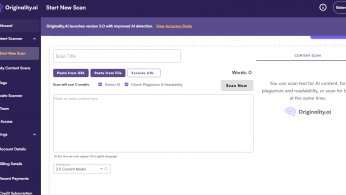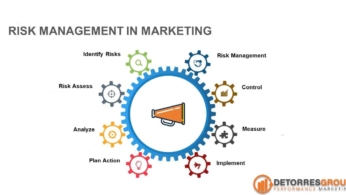In my 12+ years in the digital marketing business, I get asked a few similar questions quite often. One that just doesn’t die is: “How long does it take for SEO to work?”
A few weeks? A couple of months? A year? Honestly, there is no definite answer to that question. But one thing is for certain — SEO takes time.
Too vague? If you want a rough estimate, I will give you one.
How Long Does SEO Take to Start Working?
SEO takes 4-6 months to work, depending on a number of factors.
These factors may include your domain’s age, history with search engines, backlink profile (aka domain authority), and competition, among other things.
If by asking “how long does SEO take to work,” you mean driving organic traffic to your website and pushing it further to the top of the search engine results pages (SERPs), then that’s easily achievable within 4-6 months.
Again, that largely depends on whether your website is in good or bad shape on top of hundreds of SEO factors.
These are wonderful output-based SEO metrics. These, however, are not your end goal why you spend big bucks on SEO, right?
Ask the Right Question
The real metric is the outcome of those SEO results. Hence, the question you should be asking is: “How long does SEO take to generate leads and sales MY particular business?”
In all honesty, it could take longer than 4-6 months to start seeing substantially profitable outcomes. Even so, it’s not entirely impossible to receive business inquiries and close sales within this duration.
But do keep in mind that SEO results compound over time. You might begin reaping some SEO benefits within the first 6 months, but the results you will see after 12 months should be greater than what you are getting at 6 months.
As an example, if you were able to improve your SEO 10% each month, long term web visitors would look compounded something like this.

Is This SEO Result Time Frame Guaranteed?
No, this 4-6 months SEO time frame isn’t promised. Though it’s the consensus among SEO professionals based on experience, it’s not always guaranteed for SEO to pay off within that time span.
Even if you have hefty SEO budget, it’s rare to see lucrative outcomes within the first 4 months. You may see some spikes here and there, but most SEO positive net outcomes may take as long as 12 months or more before seeing the traditional compounding curve up and to the right. Always remember, there are many factors that have to be considered.
Be sure to have a local SEO professional look at your site so you have a clear sense of its current state.
Why Does SEO Take Time?
SEO takes time for a lot of different reasons. The biggest and most important variables that come into play include:
- Domain
- Location
- Content
- Backlink profile
- Competition
Let’s break down these SEO factors.
1. Domain
How old is your website? How’s your site’s relationship with Google? Were you ever penalized? Have you ever worked with a sketchy SEO company?
Having a new website can work for you or against you. You have no prior relationship with Google, so it takes longer than usual (6 months or even a year) for your pages to rank higher. The bright side is, it gives you full control over how Google treats your site moving forward.
Older sites and pages tend to rank better than new ones. Of course, it’s not cut-and-dry as there are other factors to take into account as well. (Please note, simply buying an old domain shouldn’t be an SEO tactic within itself if you’re trying to rank a site)
Have you been affected negatively by a Google algorithm update?
Websites that have been penalized by Google need a lot of SEO work to regain the search engine’s trust. Buying backlinks from spam websites, content scraping, thin content, low quality content, lots of duplicate content and keyword stuffing are some black hat SEO tactics that have a propensity for penalties.
Domain names with a target keyword in them may allow the searcher to understand what the site is about faster and thus getting a click. However, Google has made some changes over the past decade to change the way people optimize their URL with keywords in them (aka EMD or “exact match domains”). For more info, read this or this.

2. Location
Targeting potential customers on a local, national, or global scale has a huge impact on the progression of your SEO campaign. Local SEO is much easier because you are only targeting a smaller demographic.

However, this isn’t always the case as there are a lot of highly saturated local niche businesses, and therefore you may be going up against more established, more authoritative competitors.
Ultimately, you will see tangible results more quickly if you are serving a specific location in a less competitive space. It is much easier to compete with 10 local businesses than 1,000 national or global businesses that all sell the same services or products.
3. Content
Do you have enough content on your website? How good and relevant is it? Are all of the right pages being indexed?
A huge part of SEO hinges on the use of content creation and the relevance of your content to your ultimate buyer. It only makes sense to produce content to leverage the power of answering the questions of the searcher, which ultimately results in better search visibility for your own URL.
(One of my favorite books is “They Ask You Answer” by Marcus Sheridan)
There’s also nice correlations between the amount of content pages or blog posts you create and the number of inbound leads you generate. According to a Hubspot study, 16 blog posts or more a month resulted in 3.5 more website traffic. More traffic = more leads (especially if your site is setup for conversion.)

All that extra traffic is nice but many companies leave a lot of extra traffic and leads on the table because they stop there and push content distribution aside. There are over 4 million blog posts published on the web every day. Having a promotional strategy is key.
After keyword research is done, and the content is written, getting in front of the right people at the right time will help your SEO improve. How is that related? Because website traffic and the interaction of the content (both on and offsite) is seen by Google. Google associates that readership with positive SEO signals.
4. Backlink Profile
What websites are linking to yours? How relative & authoritative are they?
Google uses a trust score (called TrustRank) that has a significant influence on how your website can progress in the SERPs. This trust score is determined by the quality of inbound links.
Inbound links are also deemed to be the strongest and most important ranking signal right now. The volume of high-quality, relevant websites linking to yours only tells Google that you are trustworthy.
But not all backlinks are created equal.

Some are low quality; some are pure spam. Not only these types of links are futile, but they could also hurt your SEO.
Unnatural link growth — a sudden spike of backlinks within a short period — is something you should avoid, too. Google might get a hint you are buying spammy links or doing guest posts for links purposes solely.
If this abrupt increase in backlink volume comes from media coverage or successful content marketing efforts, then you should get a pass.
Ultimately, backlinks can help expedite your SEO efforts. “How long does it take for backlinks to take effect?” you might ask. It only takes a few days for Google to notice backlinks. However, it takes 10 weeks on average for a new backlink to help a page move a notch higher in the SERPs.
The SEO agency you use or people you work with internally on SEO initiatives should be able to analyze your backlink profile.
5. Competition
How many competitors are you going up against? What are they doing SEO-wise?
One criterion that you have no control over yet directly impacts your SEO efforts is the competition. No matter how hard you work, if your competitor works harder or already has a leg-up on you, it’s going to be an uphill battle.
And that largely impacts the SEO results time frame. Knowing where you stand in the field should give you an idea of how much time, money, and effort you need to spend to beat out the other side.
Some things to analyze your competition on from an SEO perspective are:
- Amount of site pages indexed
- Type of content that ranks well on Google
- Keyword rankings comparable to the ones you want to rank for
- Who is linking to their site pages

We like using tools like SEMrush & Ahrefs but there are tons of other free ones out there as well.
One thing is for certain, no two websites have the exact same set of circumstances, even if they are in the same niche competing for the same customers, so do your research.
6. Competent SEOs
One that many small- and medium-sized businesses often overlook when looking for a team of professionals to work on their SEO is the competency of their outsource.
If your competitor works with an industry-best SEO company and you work with an SEO company with a shady track record and questionable SEO tactics up their sleeves, what do you think your chances are? Razor-thin.
Businesses that settle for less are only pushing their website down the rabbit hole. And it only creates more work, more stress for you.
How Long Does It Take to Implement SEO?
Full implementation of an SEO campaign may last for 4-12 months (or even more), but maintenance and monitoring is an ongoing process. Once you see results after 6 months, it doesn’t mean you stop.
Let me paint a vivid SEO time frame so you get an idea of the implementation process.

First Month
The first month of your SEO campaign heavily focuses on:
- Market research and discovery
- Competitor analysis
- Site audit
- Keyword strategy
- Planning
- Gaining access to everything needed
Second Month
The execution of the outputs from your activities in the first month follows. Depending on how problematic a website is, it might require a complete restructuring.
Your content and link building efforts can coincide with your website overhaul. And this might take several months, depending on how many people your SEO team has.
Third Month
The fixing of technical errors continues in the third month. You can also tackle content creation, including blogging, web copywriting, and beefing up of product and company background. If budget permits, content should be started by the month prior.
Fourth Month
This month is where you level up your content creation, link building, and website optimization efforts.
“How long does it take for a website to get traffic?” you might be wondering.
The fourth month is where you start to see significant changes in your website’s organic traffic and search rankings. Depending on how well you do your content, this traffic may begin converting into leads or sales. But you need to manage your expectations.
Fifth Month
You can then work on your social media and email marketing to build and nurture your tribe of followers and expand your content’s reach. By this time, you may also start engaging in some PR or media outreach to boost your company’s brand.
Direct, social, and referral traffic, inbound links, and some marketing qualified leads should start pouring in from these sources.
Sixth Month
Starting a full-blown content marketing campaign early on is ideal. If that’s not possible, you can set it in motion in the sixth month. Content marketing banks heavily on the promotion and distribution of your content rather than just creation.
By this time, you may also have thousands of visitors per month already. It pays to add conversion rate optimization (CRO) to your efforts. CRO enables you to find opportunities on your website and make it a lead-generating, money-making machine.
Does SEO Really Work?
Yes, SEO works, and it’s an ongoing process.
Check out some of the case studies on our website. for examples.
Your campaign may have ended after 6 months, but maintenance and monitoring should never stop.
If you find your results gradually slowing down or decreasing sporadically 6 months after your SEO campaign ended, then you should start to question the tactics that you are CURRENTLY doing on the SEO front.
SEO Is an Investment
In the past decade, I heard so many stories from business owners who aborted their SEO efforts within the first 3 months because they didn’t think SEO was worth the budget.
Part of an SEO’s job is to manage client expectations, and this is often a problem that leads to clients pulling back mid-campaign because they’re expecting so much to happen in the first couple of months.
SEO is a long-term investment. It’s not the best marketing strategy out there for generating instant wins, but it delivers the best ROI.
Speaking of SEO ROI, we have a free SEO ROI calculator here or below. Enjoy!


Dustin DeTorres is the CEO of DeTorres Group, a B2B Lead Generation & digital marketing agency & Badass Insurance Leads, a life insurance leads provider. To learn more about Dustin DeTorres, click here or visit Badass Insurance Leads here.







Leave A Comment